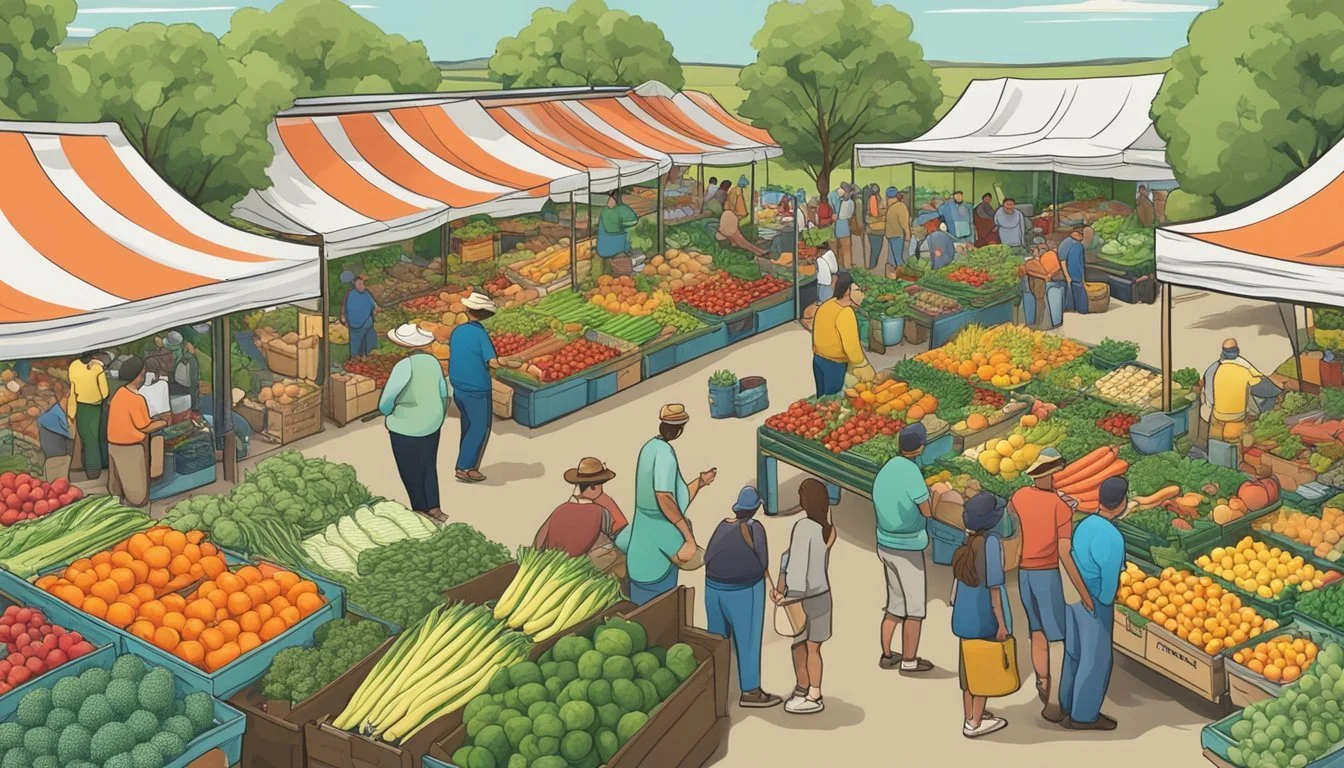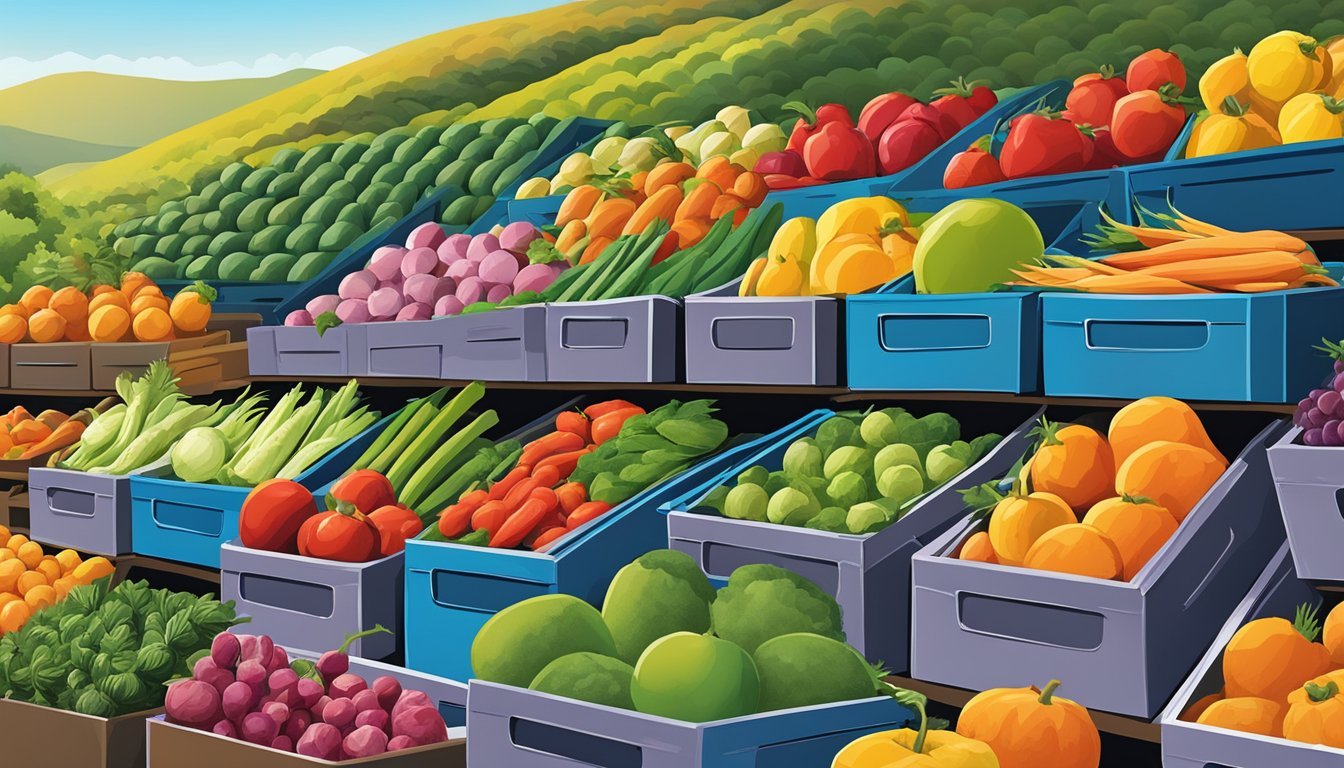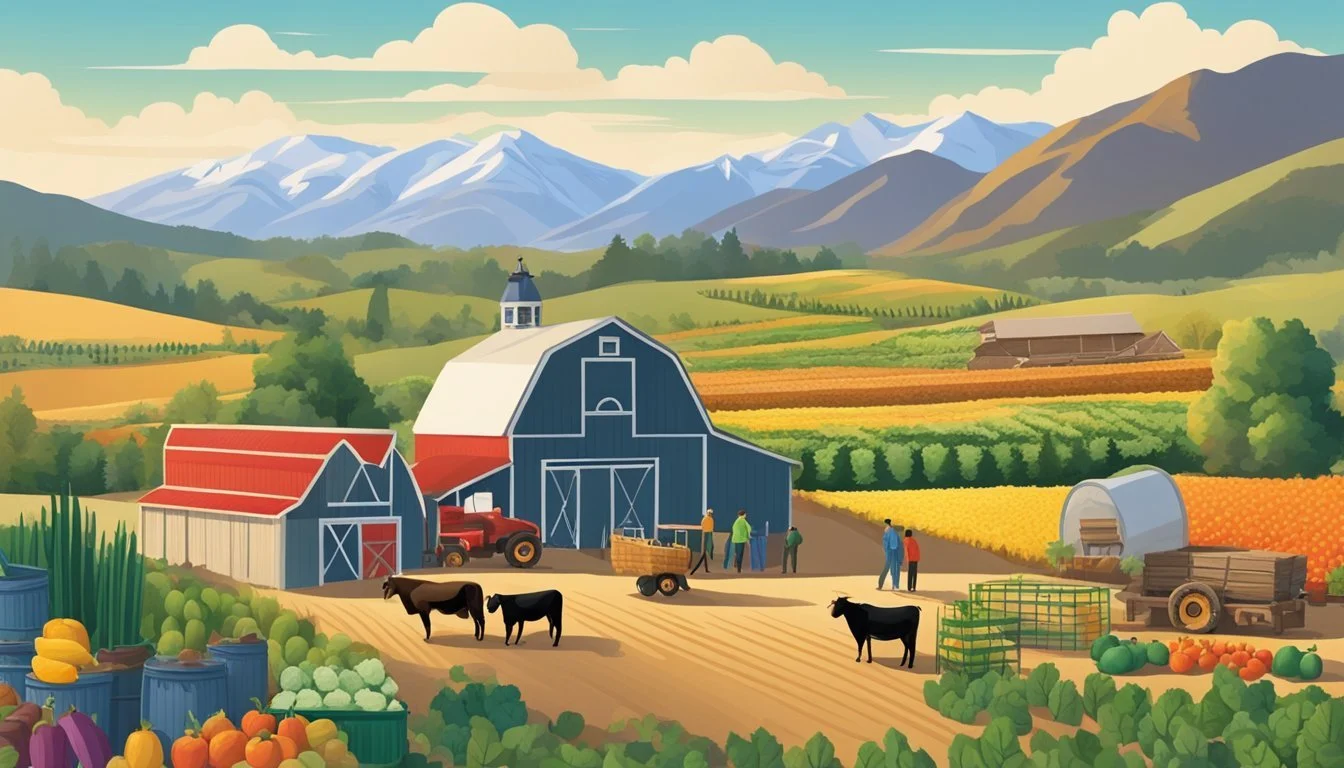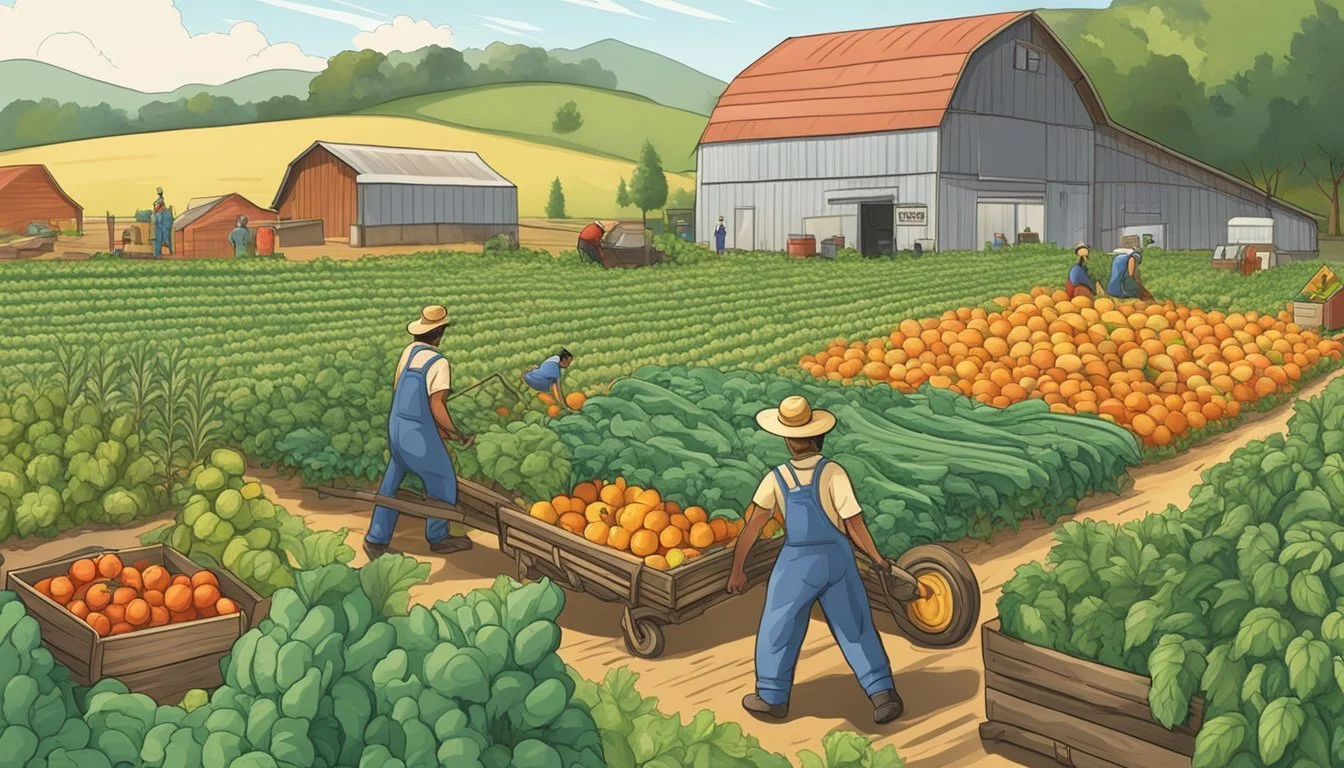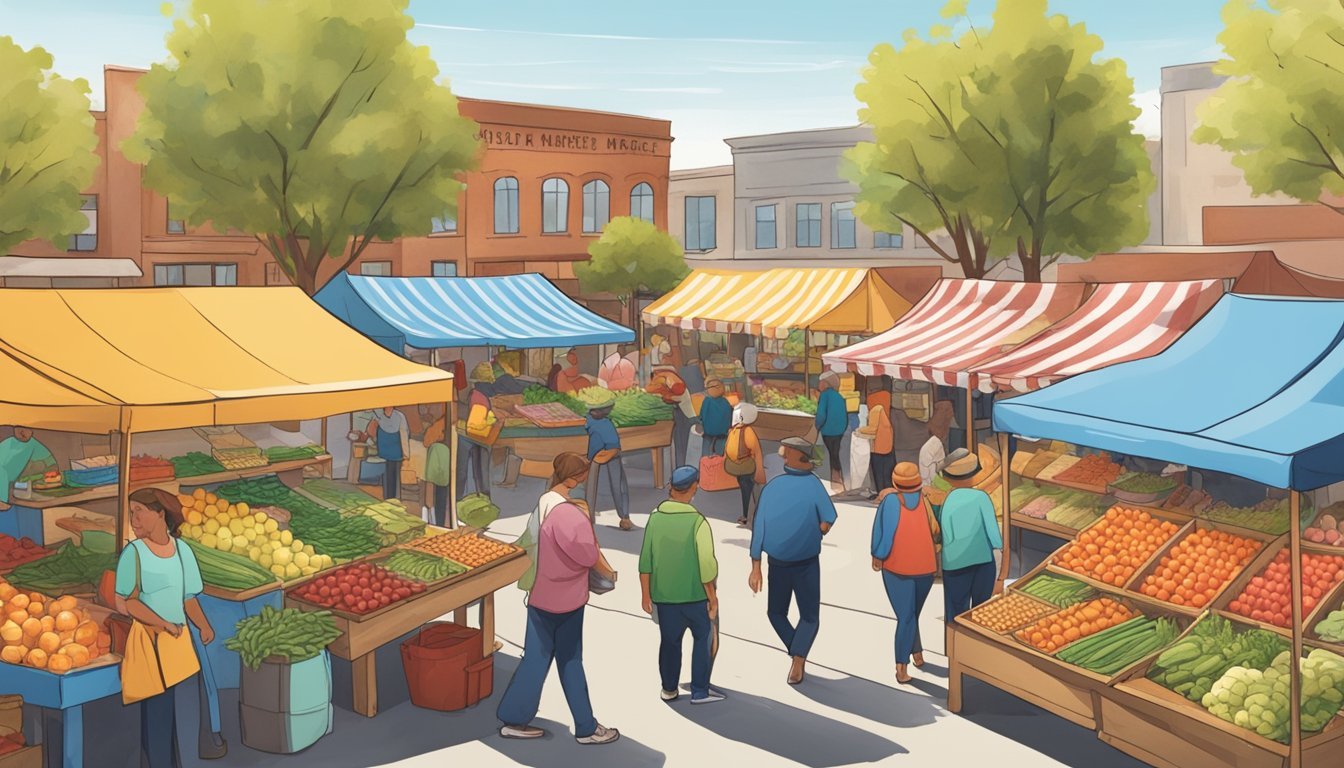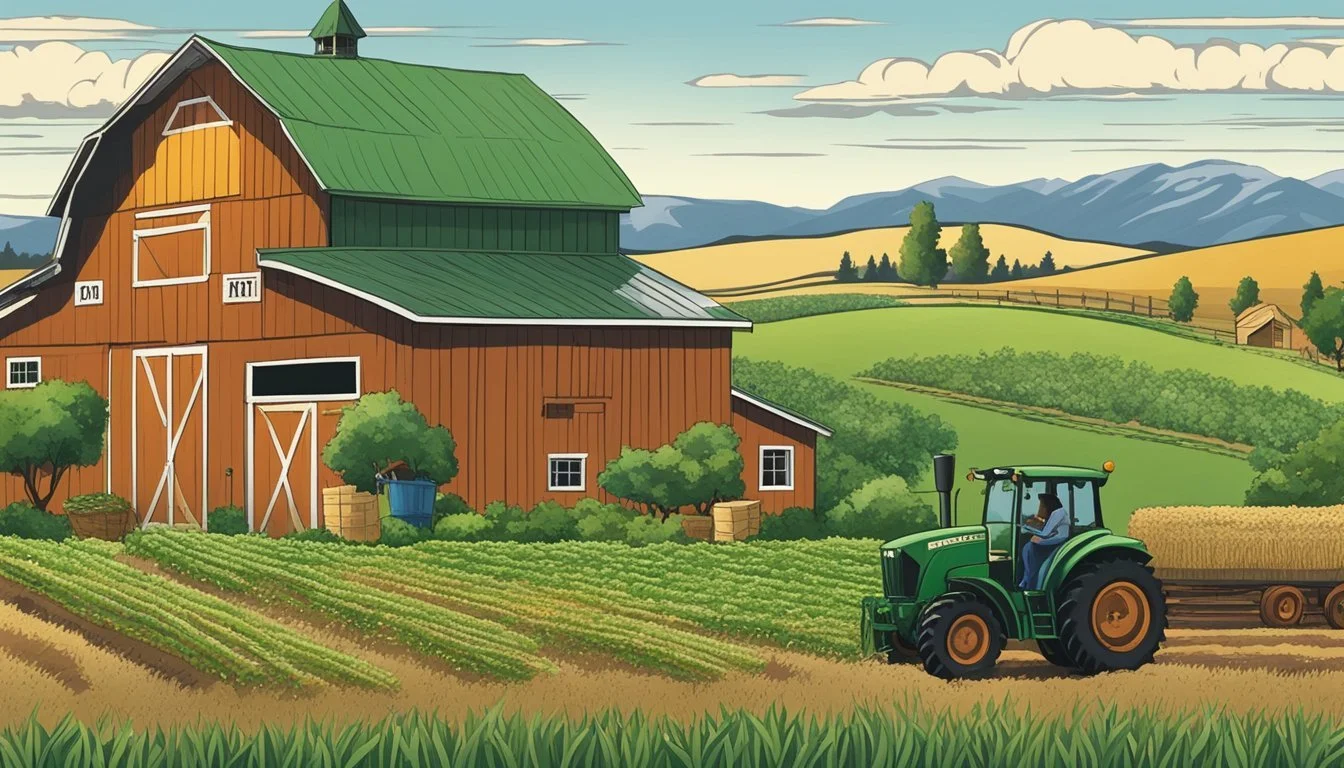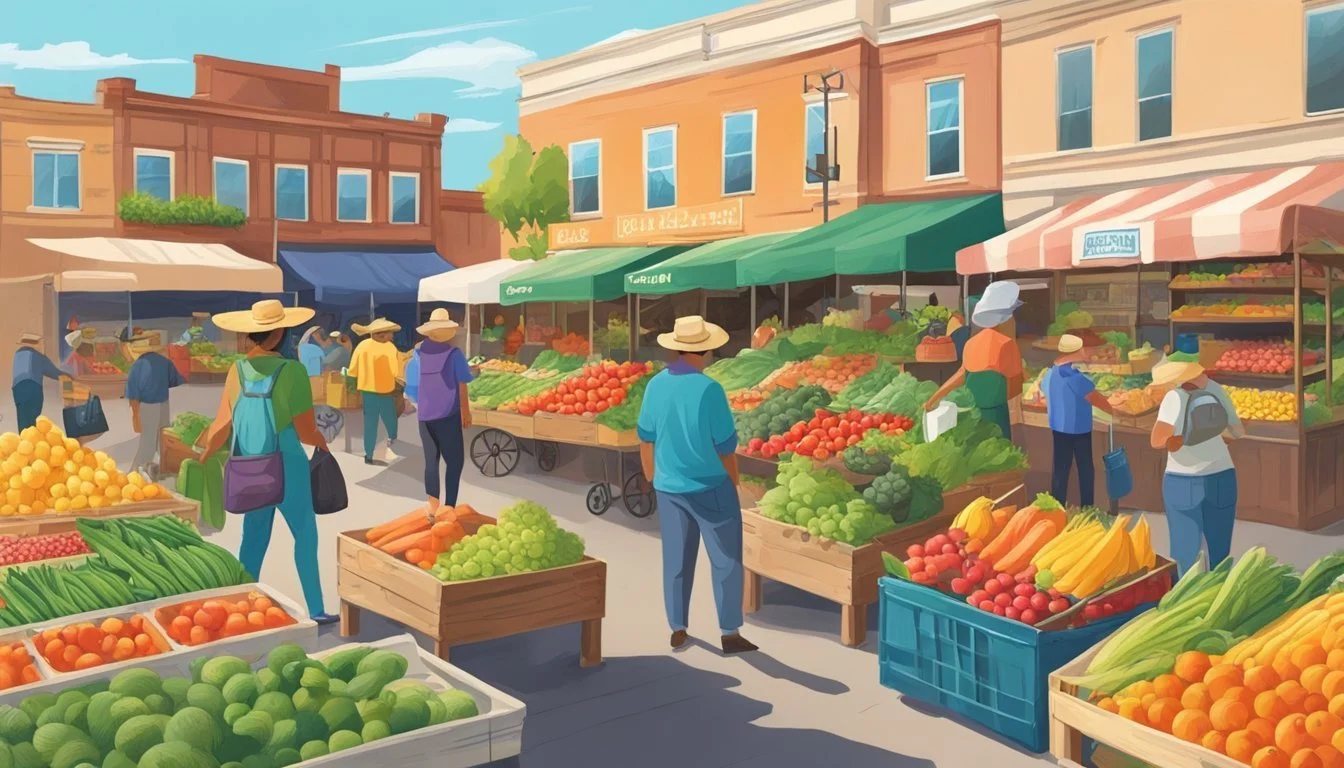Community Supported Agriculture (CSA) in Boise, ID
A Guide to Local Farm Partnerships
Community Supported Agriculture (CSA) represents a growing movement in Boise, Idaho, connecting local farmers directly with consumers. This model of agriculture allows consumers to subscribe and pay upfront for a share of the harvest, effectively becoming stakeholders in the farm’s production. CSA members benefit by receiving a regular supply of fresh, locally grown produce throughout the farming season. At the same time, farmers are assured a stable market for their crops. This symbiotic relationship fosters community involvement and supports the local economy.
In Boise, CSA programs vary, offering a range of produce and pick-up options. Some, like the Hidden Springs Community Farm, have been cultivating Idaho's fertile Dry Creek Valley for generations, reflecting a long-standing tradition of local, sustainable agriculture. Innovative programs such as Global Gardens allow consumers to support refugee farmers, whose diverse agricultural practices enrich the community's food offerings.
By participating in a CSA, Boise residents not only enjoy fresh vegetables but also contribute to the preservation of local farming practices. The system mitigates some of the uncertainties inherent in agriculture by distributing the risk among the community. It’s a proactive approach to food consumption, where the relationship between grower and consumer is front and center, and the ethos of mutual support and sustainability is paramount.
Understanding CSA
Community Supported Agriculture (CSA) programs in Boise, ID connect residents with local farms to receive regular shares of fresh produce. These programs reinforce the bond between local food systems and families.
Core Concepts of CSA
CSA operates on a subscription basis where individuals or families purchase a share of the harvest from local farms before the season begins. A share typically includes a variety of fresh, seasonal produce delivered regularly to a designated pickup location. Participants of a CSA, often known as members, pay upfront which provides family farms with early-season capital.
Benefits of Joining a CSA
Freshness and Quality: Members receive high-quality, fresh produce usually harvested within a day of pickup.
Healthy Eating: CSA shares encourage a diet centered around seasonal, locally-grown fruits and vegetables.
Support for Family Farms: Joining a CSA provides financial support directly to local farmers, helping to keep them in business.
Community Engagement: CSAs foster a sense of community, connecting members to their food source and each other.
Challenges and Considerations
Upfront Cost: Members pay for the season's worth of produce upfront, which can be a financial hurdle for some families.
Variable Selection: The nature of local farming means CSA shares are subject to the ebbs and flows of the season, weather, and other factors.
Commitment: Members commit to a season-long subscription, which can be challenging for those with changing schedules.
Pickup Locations: While pickup locations are often convenient, members need to ensure they can regularly visit them to collect their shares.
CSA Programs in Boise
Boise, ID, offers a variety of Community Supported Agriculture (CSA) programs that bolster local farms and provide residents with fresh, seasonal produce. From family-owned farms to initiatives aiding refugees, Boise's CSA landscape is community-driven and diverse.
Local CSA Farms
Boise's CSA scene includes a range of local farms such as Whistlepig Farm, which operates on a no-till, non-GMO, and pesticide-free model. Their CSA runs for 20 weeks, from May through October, with the option for weekly or biweekly pickups. Global Gardens stands out for its mission to empower refugees, allowing them to contribute their harvest to the community while becoming financially self-sufficient. Other notable local CSA farms include Peaceful Belly, Spyglass Gardens, and True Roots Organics, all contributing to the Treasure Valley's reputation for fresh, locally-sourced veggies.
How to Choose a CSA
When selecting a CSA in Boise:
Identify your needs: Weekly share or biweekly? This will dictate the frequency of your pickups.
Seasonality: Be aware of what's available during different seasons. For instance, a CSA might offer summer squash and tomatoes in warmer months and lettuce and chard in cooler ones.
Pickup locations: Some farms offer convenient pickup points like community parks or self-serve stations.
Evaluating these factors helps residents find a CSA program that best fits their lifestyle and supports local farmers effectively.
Seasonal Offerings
Boise's CSA programs offer a bounty of produce that changes with the seasons. During the spring to fall period, typically May to October, members can expect to receive a variety of vegetables including summer squash, lettuce, chard, and tomatoes. While some CSAs offer winter shares that might include storage crops and winter greens, spring and summer remain the most active seasons for CSA participants in Boise. Farms adjust their crop planting strategies to supply fresh, seasonal vegetables ensuring that CSA members get the freshest picks throughout the year.
Farm Profiles and Operations
Boise's robust community of CSA farms offer local residents access to fresh, sustainably grown produce while supporting a system that values ecological responsibility and social involvement.
Sustainable Farming Practices
Hidden Springs Community Farm operates on the principles of sustainability, dedicating 5 to 10 acres along Dry Creek to the cultivation of vegetables. They are working toward expanding to a full 26 acres, planting a seed for a greener future in Idaho’s Dry Creek Valley. Their farming approach minimizes the use of chemicals, focusing on natural methods to maintain soil health and produce quality crops.
Global Gardens, on the other hand, empowers farmers with refugee backgrounds, offering training and support as they cultivate a range of vegetables using spray-free practices. This initiative aligns with the ideals of producing non-GMO, chemical-free produce, ensuring that the local community receives the best nature can offer. The Idaho Office for Refugees backs this program, acknowledging the importance of integrating refugees into the farming community and providing them with opportunities to grow.
Community Engagement
Community Supported Agriculture in Boise actively engages families and local consumers.
Hidden Springs Community Farm invites community members to become shareholders, thus directly involving them in the farming process and fostering a strong relationship between the farm and the dinner table.
Global Gardens extends its CSA program to childcare providers, with discounted CSA memberships. This offer includes a full share with 8-10 bunches of veggies or a half share with 4-5 bunches. Delivery is included, strengthening their bond with the community and supporting local family needs.
Through programs like these, CSA acts as a bridge connecting Boise families to the land and the people who cultivate it, nurturing a community spirit centered around health and sustainability.
Producing and Harvesting
Community Supported Agriculture (CSA) programs in Boise, ID focus on growing a diverse range of crops and coordinating the harvest to provide fresh produce to their members throughout the growing season.
Cultivating a Variety of Produce
CSAs in the Boise area take pride in cultivating vegetables, flowers, herbs, and peppers, representing a kaleidoscope of produce selected for local adaptability and flavor. The Global Gardens CSA, notable for its collaboration with refugee farmers, offers spray-free, locally grown veggies, emphasizing sustainability and community building. Farmers meticulously rotate their crops to maintain soil health and maximize yield.
Harvesting Periods
Harvesting for CSAs in Boise typically follows the natural growing seasons, with pick-up schedules in place to ensure members receive the freshest produce. For instance, Hidden Springs Community Farm orchestrates weekly harvests that align with their CSA operation. Additionally, many local farms deliver directly to homes or facilitate pick-up at designated locations such as farmers markets or farm stands. Seasonal fruit and berries are picked at peak ripeness, ensuring CSA members enjoy the full spectrum of flavors the Treasure Valley has to offer.
Consumer Experience
Joining a CSA program in Boise allows customers to engage directly with food sourcing, fostering community and supporting local agriculture. Subscribers receive weekly fresh produce, connecting them to the rhythms of local farming.
Subscription Process
Customers interested in subscribing to a CSA program in the Boise area, including Eagle and Meridian, can typically sign up via the farm's website. The subscription process involves:
Selecting a share type: Full shares or smaller options are usually available to accommodate different household sizes and needs.
Payment: Many farms accept various forms of payment, including credit cards, check, or online transfers. Some also offer installment plans.
Confirmation: Subscribers will usually receive a confirmation email detailing their subscription and pickup or delivery information.
Connecting With Local Farmers
CSA programs are designed to establish a direct link between local farmers and consumers:
Pick up: Subscribers often collect their weekly share at designated pickup locations, which may sometimes coincide with community farmers markets in Boise.
Communication: Many CSAs keep their members informed about farm events and crop status, further connecting them with the food they consume.
Farm Visits: Some CSA programs in Boise invite their customers to visit the farm, offering a hands-on experience and a deeper understanding of where their food comes from.
Economic and Environmental Impact
The rise of Community Supported Agriculture (CSA) in Boise, ID, has made significant contributions to both the local economy and the preservation of the environment.
Local Economy Support
Community Supported Agriculture has become a pillar for the local economy in Boise, particularly within Treasure Valley. By subscribing to CSA shares, Boise residents invest directly in local farmers, ensuring a stable income for producers and fostering the growth of the regional agriculture sector. The model guarantees upfront payment, providing farmers with the necessary funds to cover the cost of seeds, equipment, and labor.
Economic Advantages for Farmers:
Predictable revenue stream
Reduced financial risk
Local food sales from CSAs keep money circulating within the community, supporting other local businesses and services. This system bolsters the resilience of Treasure Valley's economy by minimizing reliance on external markets.
Environmental Benefits
CSAs in Boise contribute to environmental sustainability by promoting eco-friendly farming practices. Local farmers often employ sustainable techniques that conserve land and natural resources. The shorter distance between farms and consumers results in reduced carbon emissions, as the food does not have to travel long distances.
Sustainable Practices:
Chemical-free: Many CSA farms minimize or eliminate the use of synthetic chemicals, opting for organic methods that are less harmful to ecosystems.
Land stewardship: The adoption of sustainable farming techniques protects soil integrity and biodiversity.
By participating in CSA programs, Boise residents help maintain a greener city with a smaller carbon footprint. The trend towards locally sourced, chemical-free produce emphasizes Boise's commitment to environmental health.
Beyond the Box
Community Supported Agriculture (CSA) in Boise, ID, extends far beyond the weekly delivery of fresh produce. Members have access to a variety of products and educational opportunities, and benefit from partnerships that CSAs foster with local establishments.
Additional Products and Services
CSAs in Boise do not limit their offerings to vegetables such as bok choy, mustard greens, green beans, and cabbage. They often expand their inventory to include:
Eggs: Fresh from the CSA's coops.
Cut Flowers: Seasonal selections for brightening up your home.
Fruits: An assortment of locally grown options when in season.
This diversity allows members to experience the full richness of local agriculture.
Workshops and Farming Education
Education is a pillar of CSA programs in Boise. They provide:
Training for Future Gardeners: These sessions cover the fundamentals of horticulture and sustainable farming practices.
Experience-Based Learning: Participants gain hands-on experience in activities such as planting and harvesting.
Through these efforts, CSAs foster knowledge growth within the community, ensuring that the value of locally grown food and responsible agriculture is passed on.
Restaurant Partnerships
Local CSAs harness strong relationships with Boise's culinary scene. Partnerships with restaurants result in:
The use of CSA fresh local produce on dining tables.
Specialty menus featuring items like green beans and cabbage during peak season.
These collaborations showcase the versatility of CSA vegetables while supporting the local food system.
Conclusion
Community Supported Agriculture (CSA) stands as a testament to Boise's commitment to local food and sustainable farming. CSAs not only allow residents to reconnect with the source of their produce but also play a crucial role in the thriving ecosystem of the city's agriculture.
The Idaho Preferred program highlights an array of CSA options, ensuring that Boiseans have access to farm-fresh veggies and handcrafted goods delivered to their doorstep. With the backing of state-level recognition, such as Idaho Community Supported Agriculture Week, these initiatives receive the appreciation they merit for bolstering the local economy and enhancing community resilience.
Through the efforts of organizations such as Global Gardens, the CSA model extends its benefits to include social integration, supporting refugee farmers and fostering a spirit of inclusiveness. The varied contributions from these local farmers culminate in a shared bounty — from nutrient-rich vegetable boxes distributed from central pickup locations to the reinforcement of community bonds.
Boise's CSA programs underscore a collective ambition to sustain and cherish the regional agrarian heritage. This mutualistic relationship between consumers and farmers underpins the essence of a resilient, food-secure community where the practices of today sow the seeds for a thriving tomorrow.

